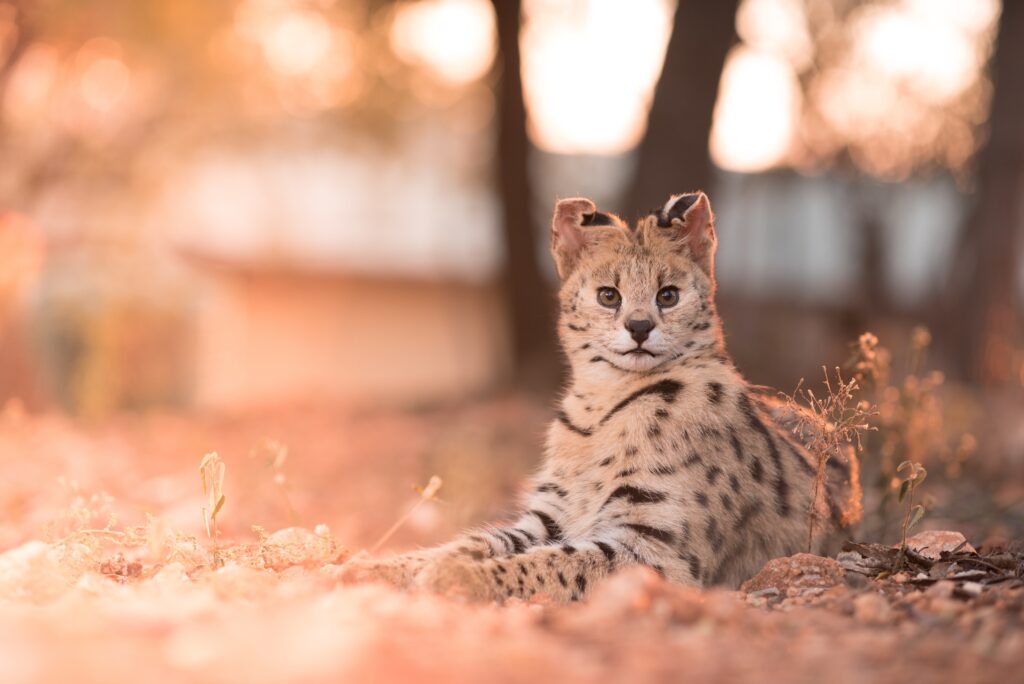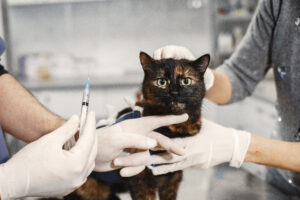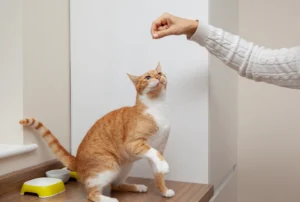Introduction
Thinking about Savannah cat adoption? These striking feline hybrids have skyrocketed in popularity over recent years, captivating potential pet parents with their exotic appearance, remarkable intelligence, and dog-like personalities. As magnificent as these spotted beauties may be, Savannah cat adoption requires careful consideration beyond their Instagram-worthy looks.
At PetsPump, we believe in responsible pet ownership through education and awareness. Before you commit to Savannah cat adoption, it’s crucial to understand that these extraordinary creatures aren’t your typical house cats. While Savannah cats can make wonderful companions for the right households, they present unique challenges that many prospective owners don’t fully anticipate.
This comprehensive guide explores five significant reasons why Savannah cat adoption might not align with your lifestyle, living situation, or expectations. Our goal isn’t to discourage you from considering Savannah cat adoption, but rather to ensure you make an informed decision that benefits both you and your potential feline companion.
Whether you’re researching Savannah cat adoption options, contemplating visiting Savannah cat breeders, or exploring Savannah cat rescue organizations, understanding these key considerations will help determine if this extraordinary breed belongs in your home.

What Are Savannah Cats?
Before diving into the challenges of Savannah cat adoption, let’s establish what makes these cats unique. Savannah cats are a relatively new breed resulting from crossing domestic cats with African servals—wild cats native to sub-Saharan Africa. The first successful crossing occurred in the 1980s, and the breed was officially recognized by The International Cat Association (TICA) in 2012.
Savannah cats are categorized by “filial” generations, abbreviated as F1 through F5+:
- F1 Savannah cats: First-generation hybrids with approximately 50% serval genes
- F2 Savannah cats: Second-generation with roughly 25% serval genes
- F3 Savannah cats: Third-generation with about 12.5% serval genes
- F4 Savannah cats: Fourth-generation with approximately 6.25% serval genes
- F5+ Savannah cats: Fifth-generation and beyond with decreasing percentages of serval genes
The Savannah cat adoption process varies significantly based on these generations, with earlier generations maintaining more wild characteristics and later generations displaying more domestic traits. Now, let’s examine why adopting a Savannah cat requires careful consideration.
Reason #1: Legal Restrictions and Regulations
One of the most critical factors to consider before pursuing Savannah cat adoption is whether these exotic hybrids are even legal in your area. The legality of owning Savannah cats varies dramatically across the United States, creating a complex patchwork of regulations that potential owners must navigate.
State and Local Restrictions
Many states classify early-generation Savannahs (F1-F3) as exotic or wild animals, prohibiting their ownership entirely. Other states permit ownership but impose strict licensing requirements or limit which generations are allowed. Here’s a snapshot of the current landscape (though regulations frequently change):
- States with complete bans: Hawaii prohibits all Savannah cats regardless of generation
- States with partial restrictions: New York, Massachusetts, Georgia, Nebraska, and Texas have various limitations on earlier generations
- States with municipal restrictions: Even if your state permits Savannah cat adoption, individual cities, counties, and homeowners’ associations may have their own prohibitions
When researching Savannah cat adoption, verifying current regulations in your specific location is essential. Contact your local animal control office or fish and wildlife department for the most up-to-date information. Breaking exotic pet laws can result in substantial fines and, more devastatingly, the confiscation of your beloved pet.
Housing Considerations
Even if Savannah cat adoption is legal in your area, rental properties frequently prohibit exotic pets or have weight/size restrictions that exclude larger Savannah cats. Before considering Savannah cat adoption, ensure your housing situation can accommodate these special felines for their entire lifespan of 12-20 years.
Travel Complications
Savannah cat adoption also means navigating travel complexities. Many states won’t allow Savannah cats to cross their borders, even temporarily. Additionally, international travel with hybrid cats often involves extensive paperwork, quarantine periods, or outright bans, making vacations or relocations particularly challenging for Savannah owners.
For more information on pet travel regulations, check out our comprehensive guide to traveling with exotic pets.
Reason #2: Extraordinary Cost of Ownership
The Savannah cat adoption cost extends far beyond the initial purchase price, which itself can be substantial. Understanding the financial commitment is crucial when considering Savannah cat adoption.
Initial Acquisition Costs
When it comes to Savannah cat adoption, the upfront cost varies dramatically depending on generation:
- F1 Savannah cats: $15,000-$20,000+
- F2 Savannah cats: $8,000-$12,000
- F3 Savannah cats: $5,000-$8,000
- F4 Savannah cats: $2,500-$5,000
- F5+ Savannah cats: $1,500-$2,500
While Savannah cat rescue organizations occasionally have Savannahs available for adoption at lower costs, these opportunities are extremely rare due to the breed’s popularity and value.
Veterinary Expenses
The Savannah cat adoption process should include finding specialized veterinary care, which typically costs more than standard feline healthcare:
- Specialized veterinarians: Many regular vets aren’t experienced with hybrid cats
- Higher examination fees: Expect to pay premium prices for exotic animal specialists
- Specialized testing: Savannah cats may require specialized blood work and diagnostics
- Emergency preparedness: Having funds available for potential emergencies is essential
Environmental Modifications
After Savannah cat adoption, you’ll likely need to make substantial home modifications:
- Vertical space: Savannah cats are exceptional jumpers and climbers, requiring tall cat trees and shelving
- Secure enclosures: Many owners build specialized “catios” or outdoor enclosures
- Enrichment toys: These intelligent cats need mentally stimulating toys, which can be costly
- Damage repair: Their size and energy may result in more household damage than typical cats
Insurance Challenges
Finding pet insurance after Savannah cat adoption can be difficult, as many providers exclude hybrid animals or charge significantly higher premiums. This means you’ll likely need to cover all veterinary expenses out-of-pocket.
For insights on budgeting for exotic pets, visit our comprehensive exotic pet expense guide.
Reason #3: High-Energy Lifestyle Requirements
Perhaps the most significant consideration in Savannah cat adoption is whether your lifestyle can accommodate their extraordinary energy levels and need for engagement. These aren’t cats that will contentedly lounge on your couch all day.
Exercise Needs
After Savannah cat adoption, be prepared for a pet with energy needs more comparable to a dog than a typical house cat:
- Daily active play: At least 1-2 hours of interactive play daily
- Space requirements: Savannah cats need room to run and jump
- Outdoor access: Many Savannahs benefit from supervised outdoor time or enclosed outdoor spaces
- Walking potential: Some Savannah cats can be leash-trained for walks
Mental Stimulation Requirements
The Savannah cat adoption experience involves meeting complex mental stimulation needs:
- Puzzle toys and challenges: Their intelligent minds require regular cognitive exercise
- Training sessions: Many owners use clicker training and teach tricks
- Rotating toy collection: Preventing boredom requires variety
- Social interaction: Savannahs often demand significant attention from their humans
Potential Behavioral Issues
Without proper stimulation, adopting a Savannah cat can lead to challenging behaviors:
- Destructive tendencies: Underexercised Savannahs may destroy furniture or belongings
- Excessive vocalization: They may become vocal when bored or seeking attention
- Escape attempts: Their intelligence makes them adept at opening doors and finding escape routes
- Stress-related behaviors: Including inappropriate elimination or aggression
Learn more about providing proper enrichment for high-energy cats in our article about creating engaging environments for active breeds.
Reason #4: Special Dietary and Care Requirements
The Savannah cat adoption process should include preparation for their specialized nutritional and care needs, which differ significantly from typical domestic cats.
Specialized Nutrition
After Savannah cat adoption, expect to provide a diet that honors their wild ancestry:
- High-protein requirements: Savannahs typically need protein percentages exceeding 40%
- Raw or premium diets: Many thrive on raw food diets or premium grain-free options
- Feeding schedule considerations: Some Savannahs do better with multiple smaller meals
- Higher food costs: Their larger size and quality dietary needs increase monthly expenses
Litter Box Challenges
The Savannah cat adoption experience often includes adapting to their unique bathroom habits:
- Larger litter boxes: Standard boxes are typically too small for their size
- Multiple boxes: Required in multi-level homes
- Special substrates: Some Savannahs prefer specific litter types
- Different elimination behaviors: Some Savannahs may spray more frequently than domestic cats
Grooming and Hygiene
While Savannah cat adoption doesn’t involve extreme grooming requirements, their care differs somewhat from typical cats:
- Regular nail trimming: Their powerful claws require frequent maintenance
- Dental care: Preventative dental care is essential due to potential genetic issues
- Bathing tolerance: Unlike many cats, some Savannahs enjoy water and may require occasional bathing
Specialized Equipment
The Savannah cat adoption cost extends to specialized equipment:
- Sturdy furniture: Standard cat trees may not support their weight and activity
- Reinforced carriers: Their size requires larger, more secure carriers
- Specialized toys: Durable toys designed for their strength and play style
For detailed information about proper nutrition for hybrid cats, check out our guide on optimal diets for exotic feline breeds.
Reason #5: Compatibility Challenges with Household Dynamics
Before finalizing Savannah cat adoption, consider how these unique felines might interact with your existing household members and lifestyle.
Family Compatibility
The Savannah cat adoption process should include evaluating family compatibility:
- Children: While Savannahs can be wonderful with children, their size and energy can accidentally injure small children
- Elderly family members: Their boisterous nature may be overwhelming for seniors
- Allergies: Their size means more dander, potentially exacerbating allergies
Pet Compatibility
Adopting a Savannah cat requires considering other pets:
- Other cats: Savannahs may dominate or intimidate smaller cats
- Dogs: While many Savannahs get along well with dogs, introductions require careful management
- Small pets: Their strong prey drive makes them potentially dangerous to smaller animals like rodents, birds, or reptiles
Lifestyle Compatibility
The Savannah cat adoption experience must align with your lifestyle:
- Work schedule: Long hours away from home can lead to boredom and behavioral issues
- Travel frequency: Finding cat sitters familiar with Savannah cats can be challenging
- Noise tolerance: Savannahs can be quite vocal, which may not suit those desiring quiet
- Privacy preferences: These social cats often want to be involved in everything you do
Long-term Commitment
Savannah cat adoption requirements include preparation for a 12-20 year commitment:
- Life changes: Consider how potential moves, relationships, or family changes might affect your ability to care for a Savannah
- Financial stability: Their ongoing costs require long-term financial security
- Care provisions: Planning for their care if something happens to you
For more insights on introducing new pets to existing household animals, explore our guide to multi-pet households.
Alternatives to Savannah Cat Adoption
If after reading about these challenges, you’re reconsidering Savannah cat adoption, several alternatives might better suit your situation while still providing the qualities that attracted you to Savannahs.
Similar-Looking Domestic Breeds
Several domestic breeds share physical characteristics with Savannah cats:
- Bengal cats: Spotted domestic cats with wild appearances but fewer challenges
- Egyptian Maus: Natural spotted cats with athletic builds
- Ocicats: Spotted domestic cats with no wild blood
- Abyssinians: Share the Savannah’s active, intelligent nature in a smaller package
Learn more about these breeds in our comparison article: Spotted Cat Breeds: Finding Your Perfect Match.
Savannah Cat Fostering
Some Savannah cat rescue organizations offer fostering opportunities, allowing you to experience life with a Savannah before committing to Savannah cat adoption.
Lower-Generation Options
If you’re still interested in Savannah cat adoption, consider later generations (F4-F7), which typically have:
- Fewer legal restrictions
- More domestic behaviors
- Lower costs
- Similar appearance to higher generations
Supporting Conservation Efforts
Instead of adopting a Savannah cat, consider supporting conservation efforts for wild servals and other exotic cats through reputable organizations.
The Savannah Cat Adoption Process: What to Expect
If you’ve considered the challenges and still believe Savannah cat adoption is right for you, understanding the proper Savannah cat adoption process is essential.
Finding Reputable Sources
Research is critical when pursuing Savannah cat adoption:
- Reputable breeders: Look for TICA-registered breeders with transparent practices and health testing
- Savannah cat rescue organizations: Specialized rescues occasionally have Savannahs available
- Savannah cat adoption agencies: Some agencies specialize in exotic breed placements
- Avoiding scams: Unfortunately, Savannah cat adoption scams are common due to their high value
Learn to identify responsible breeders in our article: Recognizing Ethical Exotic Pet Breeders.
Meeting Savannah Cat Adoption Requirements
Legitimate sources for Savannah cat adoption typically have requirements:
- Home visits: Ensuring your environment is suitable
- Experience verification: Some require previous exotic cat experience
- Reference checks: From veterinarians or other pet professionals
- Legal compliance: Proof of legal permission in your area
Questions to Ask Before Adoption
During the Savannah cat adoption process, ask potential breeders or Savannah cat adoption agencies:
- Health testing practices
- Socialization methods
- Generation verification
- Support after adoption
- Return policies if the match doesn’t work out
Preparing for Arrival
Before finalizing Savannah cat adoption, prepare your home:
- Secure potential escape routes
- Set up appropriate vertical space
- Purchase appropriate toys and enrichment items
- Find a veterinarian experienced with hybrid cats
- Establish a safe introduction space
Conclusion: Is Savannah Cat Adoption Right for You?
Savannah cat adoption represents a significant commitment that extends far beyond the striking appearance that initially attracts many prospective owners. These remarkable felines offer extraordinary companionship, intelligence, and beauty, but they come with equally extraordinary responsibilities.
Before pursuing Savannah cat adoption, honestly assess your:
- Legal ability to own a Savannah in your location
- Financial capacity to meet their needs
- Lifestyle compatibility with their energy and attention requirements
- Home environment’s suitability
- Long-term commitment capability
If you can confidently address these considerations, Savannah cat adoption might indeed be appropriate for you. However, if this article has raised concerns, consider the alternatives we’ve discussed or spend more time researching and interacting with Savannahs before making your decision.
At PetsPump, we believe the most responsible Savannah cat adoption comes from educated owners who fully understand what they’re committing to. Whether you decide to proceed with adopting a Savannah cat or choose another pet companion, we’re here to support your journey to responsible pet ownership.
For those considering Savannah cat adoption, explore our related articles about exotic pet ownership requirements and preparing your home for high-energy pets.
If you’ve had experience with Savannah cat adoption or have questions about the Savannah cat adoption process, we’d love to hear from you in the comments below!
FAQ: Common Questions About Savannah Cat Adoption
How much does Savannah cat adoption typically cost?
The Savannah cat adoption cost varies significantly by generation. F1 Savannahs can cost $15,000-$20,000+, while later generations (F5+) typically range from $1,500-$2,500. Savannah cat rescue organizations may occasionally have adults available for lower fees, but this is rare.
Are Savannah cats good pets for first-time cat owners?
Most experts recommend against Savannah cat adoption for first-time cat owners due to their specialized care requirements, high energy, and potential behavioral challenges. Experience with active cat breeds is beneficial before considering Savannah cat adoption.
Can Savannah cats live in apartments?
While technically possible, apartment living presents significant challenges for Savannah cat adoption. Their high energy, need for vertical space, and potential for noise complaints make houses with secure outdoor access more suitable. Additionally, many apartments have pet policies that prohibit exotic breeds.
How can I find Savannah cat adoption near me?
To explore Savannah cat adoption near me, research TICA-registered breeders, specialized Savannah cat rescue organizations, and exotic pet adoption networks. Always verify the legitimacy of any Savannah cat adoption agencies and be wary of prices that seem too good to be true.
What are the Savannah cat adoption requirements from reputable sources?
Common Savannah cat adoption requirements include:
- Legal verification (permits if required in your area)
- Home assessment
- Veterinary references
- Knowledge demonstration about Savannah care
- Financial stability verification
- Commitment to appropriate housing and enrichment
How do Savannah cats differ from regular domestic cats?
Savannah cats differ from domestic cats in size (potentially 20-30 pounds), activity level (significantly higher), intelligence (exceptional problem-solving abilities), dietary needs (higher protein requirements), and social behavior (often more dog-like in their attachment and interactive nature).
Is Savannah cat rescue a good alternative to buying from breeders?
Savannah cat rescue can be an excellent option, providing a home to a Savannah in need while potentially reducing costs. However, Savannah cat rescue opportunities are limited due to their rarity and the high demand for the breed. Rescued Savannahs may also have behavioral challenges requiring experienced owners.
What should I know about the Savannah cat adoption process?
The Savannah cat adoption process typically involves:
- Extensive research and breed education
- Finding and vetting reputable sources
- Meeting Savannah cat adoption requirements
- Home preparation
- Legal compliance verification
- Potentially lengthy waiting periods, especially for specific generations
- Considerable paperwork and documentation
For more detailed information about exotic pet adoption, visit our comprehensive guide on navigating specialized pet adoption processes.
For insights on budgeting for exotic pets, visit our comprehensive exotic pet expense guide and monthly budget planning for specialty breeds.






